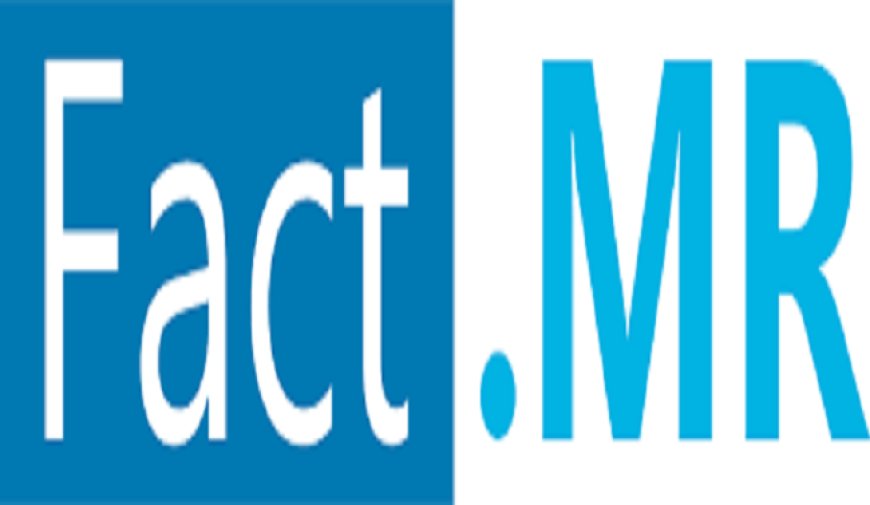Wearable Tech and IoT Propel Healthcare Cloud Computing Market
The global Healthcare Cloud Computing Market, valued at US$ 41.12 billion in 2024, is anticipated to soar to US$ 320.9 billion by 2034, driven primarily by an aging population and the rising prevalence of chronic diseases.

The global Healthcare Cloud Computing Market, valued at US$ 41.12 billion in 2024, is anticipated to soar to US$ 320.9 billion by 2034, driven primarily by an aging population and the rising prevalence of chronic diseases. Healthcare cloud computing involves the use of cloud services and technology to store, manage, process, and exchange healthcare-related applications and data. This technology enables the distribution of computing resources, such as storage, processing power, and software programs, through private networks or the Internet, utilizing remote servers and networks.
Plant-based protein supplements are derived from soy, brown rice, peas, wheat, chickpeas, and other ingredients. The high amino acid and low sodium content in plant-based protein supplements is driving their sales. Consumers’ preference for plant-based protein supplements is influenced by ethical concerns over the sourcing of animal-based proteins, the rising prevalence of food allergies, safety concerns, and the movement toward veganism to stop animal abuse.
Key Takeaways from Market Study
The global healthcare cloud computing market is poised for significant growth, with projections estimating it will reach US$ 41.12 billion by 2024. This demand is expected to rise at an impressive compound annual growth rate (CAGR) of 17.9% from 2024 to 2034, ultimately reaching US$ 320.9 billion by the end of the forecast period. A critical driver of this expansion is the aging global population and the increasing prevalence of chronic diseases, necessitating the adoption of advanced, integrated information systems to enhance healthcare delivery. Cloud computing in healthcare encompasses the use of cloud services and technologies for storing, managing, processing, and exchanging healthcare-related applications and data, providing vital support through remote servers and networks.
Regionally, the market in East Asia is projected to experience a noteworthy CAGR of 23.4% through 2034, underscoring the region's rapid adoption of healthcare cloud technologies. Similarly, North America is anticipated to witness a remarkable CAGR of 23% from 2024 to 2034, driven by substantial investments in healthcare infrastructure and the growing need for efficient data management solutions. Additionally, the demand for clinical information systems is expected to surge at a CAGR of 18.9% during this period, reflecting the healthcare sector's ongoing transformation towards more integrated, data-driven approaches. This widespread adoption of cloud computing in healthcare promises to enhance patient care, streamline operations, and foster innovations across the industry.
List of Key Companies Profiled in The Report
- Dell Inc.
- IBM Corporation
- Koninklijke Philips NV
- Amazon, Inc.
- Oracle
- Napier Healthcare Solutions Pte. Ltd.
- Optum, Inc.
- Carestream Health
- ClearDATA
- Cisco Systems Inc.
- Others
Rapid Growth Expected in Asia Pacific Healthcare Cloud Computing Market
The Asia Pacific region is poised for significant growth, with China emerging as a lucrative market for cloud solution providers. Factors driving the expansion of the healthcare cloud computing market include an aging population, the prevalence of chronic diseases, and government initiatives promoting integrated health systems.
Meanwhile, the United States remains at the forefront of global cloud computing innovation, leveraging advanced technologies such as artificial intelligence (AI), machine learning, big data analytics, and the Internet of Things (IoT) to revolutionize healthcare. These cutting-edge tools enable personalized treatment, predictive analytics, and more efficient data processing, shaping the future of healthcare delivery.
Notable Developments
Several notable developments are shaping the healthcare cloud computing landscape, including strategic partnerships, mergers and acquisitions, and technological innovations. Leading cloud service providers are investing heavily in healthcare-specific solutions, while startups and niche players are disrupting the market with specialized offerings. Moreover, regulatory changes and industry initiatives aimed at promoting interoperability and data sharing are influencing the development of cloud-based healthcare ecosystems.
Competitive Landscape
The competitive landscape within the healthcare cloud computing industry is marked by a rich tapestry of players, ranging from established tech behemoths to burgeoning startups. A variety of companies specialize in healthcare cloud computing, offering bespoke solutions tailored to the unique demands and intricacies of the healthcare sector. These solutions encompass aspects such as regulatory compliance, seamless integration with Electronic Health Records (EHRs), and optimization of clinical workflows.
A significant development in this arena unfolded in September 2022 when IBM and Bharti Airtel, a prominent telecommunications giant in India boasting approximately 358 million active users, unveiled their strategic collaboration. This partnership aimed to roll out Airtel's cutting-edge edge computing platform across India, spanning an impressive network of 20 locations and 120 network data facilities.












